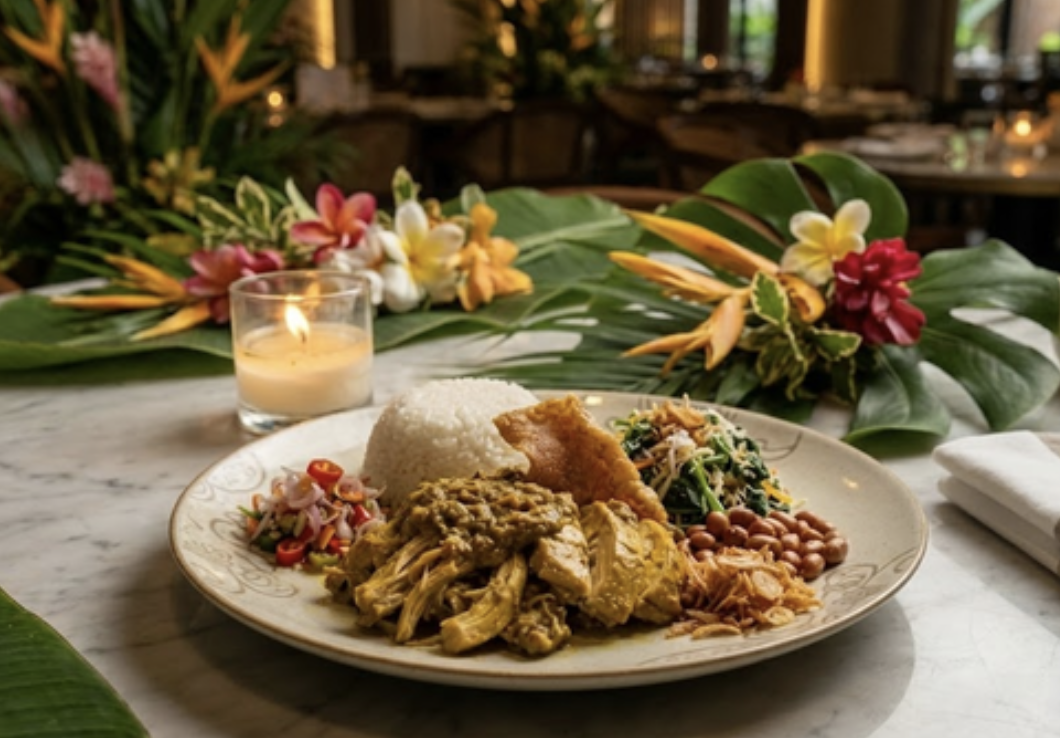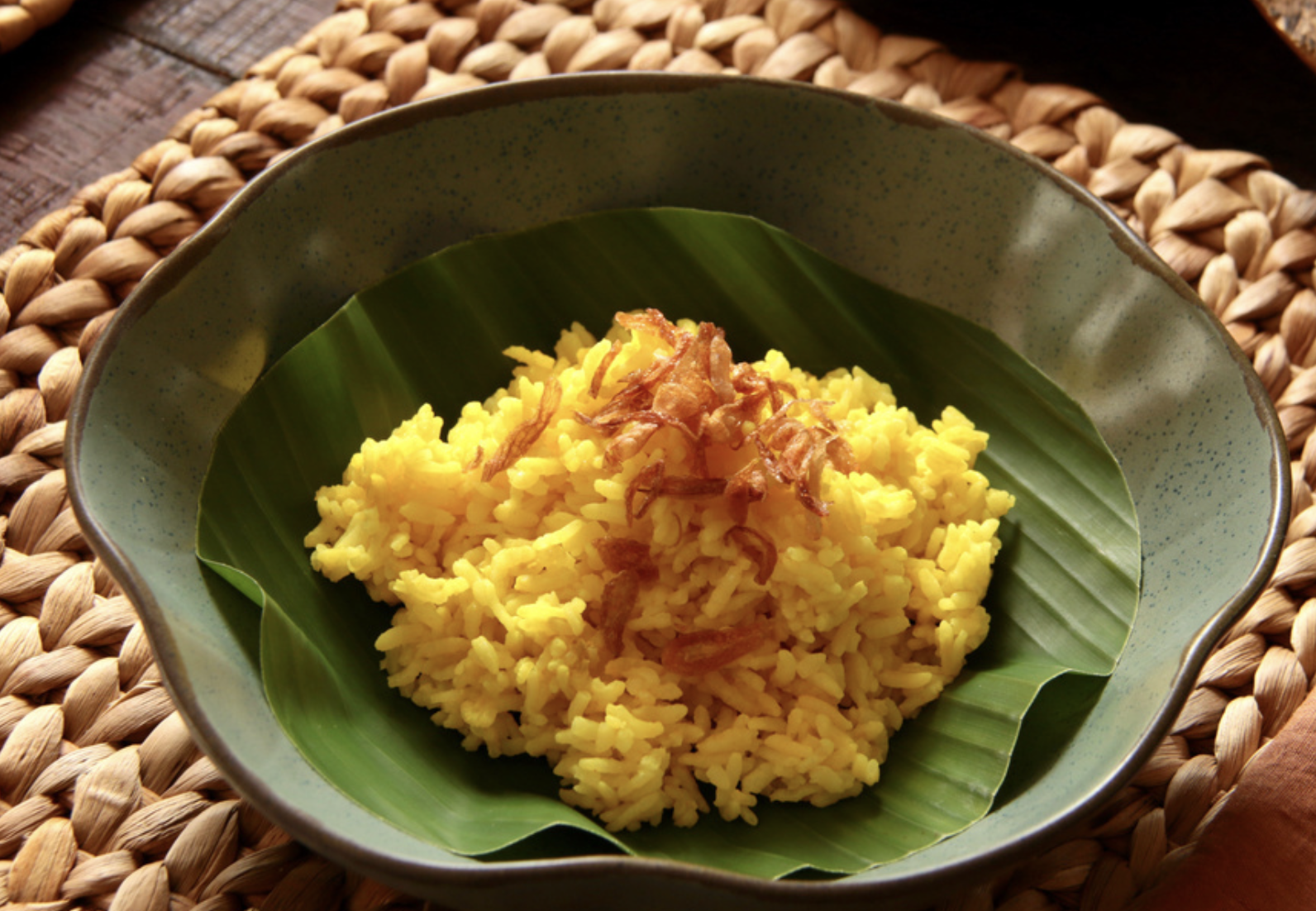In Bali, the most extraordinary meals are often prepared not in restaurants but in temples. Festival days transform entire villages into living kitchens, where food becomes both offering and celebration. At a Balinese odalan (temple anniversary), hundreds of dishes are prepared by the community – some destined for shrines, others for the long communal tables that follow. These events reveal Bali’s unique approach to food: sacred first, then shared. BBTF 2026 shines a light on these culinary traditions, inviting buyers to discover how temple festivals can become unforgettable experiences for travellers seeking authenticity, spirituality, and flavour woven together.
Every Balinese temple festival is a feast for the senses. In the days leading up to the celebration, men gather to prepare lawar, a mix of vegetables, coconut, minced meat, and rich spices, made by hand in a communal effort, usually a day before the ceremony. On certain temple festivals, they also roast babi guling (spit-roast pig), a dish reserved for special temple events. Meanwhile, women focus on creating intricate offerings such as sesajen or banten, arranging flowers, fruit, rice, and symbolic elements that embody devotion and harmony. The air fills with the scent of turmeric, galangal, lemongrass, and ginger – fragrances that evoke both ritual and memory.
Food here is not only eaten – it is offered. Dishes are beautifully arranged in woven palm-leaf baskets and carried in vibrant processions to the temple. Offerings, or banten, may include fruits, rice cakes, and sweets stacked in towering displays. Only after the gods have been honored do these foods return to the community, shared among families in a spirit of gratitude.
What makes temple festivals unique is their communal nature. There are no recipes written down; knowledge is passed orally, and every dish is prepared together. The act of cooking becomes as important as the eating itself – strengthening bonds and affirming cultural identity.
For the travel trade, temple festivals are a window into Bali’s living heritage. Imagine an itinerary where visitors are welcomed into a village to watch preparations, join in weaving palm-leaf offerings, or taste dishes served after the ceremonies. Such experiences go beyond sightseeing; they allow travellers to participate in the rhythm of Balinese life.
Temple festivals also embody sustainability – meals rely on local ingredients, traditional methods, and zero waste, as everything from coconut husks to banana leaves is reused. In this way, they represent the perfect blend of sacred values and modern consciousness.“Temple festivals show food as devotion, memory, and community. BBTF 2026 connects these sacred flavours to the global stage.” Partner with ASITA Bali Region to design meaningful gastronomy journeys.






